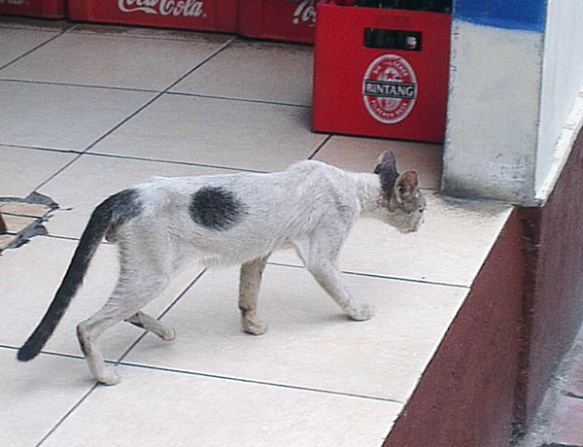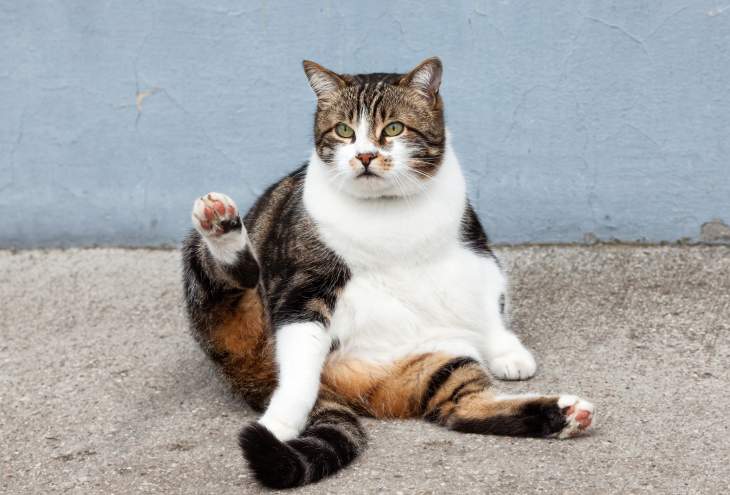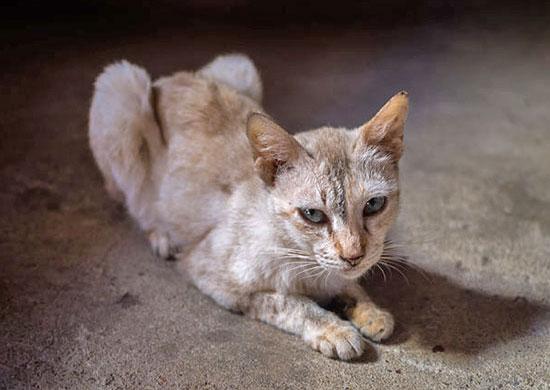As a cat lover, nothing breaks your heart into a million pieces than seeing a super skinny feral kitty out there in the cold.
You don’t need anyone telling you that the cat is malnourished and needs your help.
Without thinking twice, you bring the kitty back home with you hoping to care for him.
The first order of business is to get him enough food to add some meat to his bones.
A malnourished cat requires a steady intake of nutritious food more than anything else. You want the kitty to put on the weight like yesterday.
However, you know it will be a while before that happens.
The question is: how long does it really take for a malnourished feline to gain weight?
That’s what we will talk about in this guide.
What Causes Malnourishment in Cats?

Lack of good food is obviously the number one cause of malnutrition in a cat.
It is mainly common for cats under one year but adult cats can become malnourished as well.
Thankfully, a lack of food is easily treated by giving the kitty a supply of nourishment in small doses until she regains all of his required weight.
The presence of hairballs in the tummy can also cause malnutrition in your cat.
Cats are known for being efficient groomers. Unfortunately, sometimes they lick their bodies so much that hairballs find their way to the digestive tract. Kitties with fleas can scratch excessively causing fur to travel to the tummy.
If hairballs or other solid objects are present in the tummy, they will not only cause dehydration but may block the intestines as well.
Other causes of malnutrition in cats include cat flu, diarrhea, internal parasites, feline AIDS, fever, distemper toxoplasmosis, and leukemia.
To know what causes malnutrition in your kitty, rush them to the vet before you do anything.
How Long Does It Take For The Cat To Gain Weight?

After speaking to the vet about your cat’s situation, they will suggest the best course of action.
If possible, do not attempt to try any method of putting weight on the cat without the vet’s direction.
If the cat has an underlying medical condition like kidney disease, this needs to be addressed first.
If not, the cat may never gain weight despite your efforts to help him. Some weight gain methods actually put the kitty at risk.
How long the kitty takes to add weight is a factor of many things. It is difficult to make a blanket statement as different cats respond to different strategies in different ways.
Some gain weight in a matter of days while others take months to reach a satisfactory weight.
Gradual weight gain is always better than fast weight gain.
A malnourished cat is not easy to care for. At first, he needs very soft foods taken in small bits throughout the day.
After a couple of days (or weeks depending on the response), he can transition to wet food then a combination of wet and dry food, and finally kibble.
He will also require plenty of supplements to give him all-around health.
This takes time. Give yourself a couple of months to reach the desired weight.
As mentioned, how long a malnourished cat gains weight really depends on a number of factors.
These include the following.
1. Caloric Intake
A cat that needs to gain weight needs to eat more calories than a kitty who is maintaining its weight.
Unfortunately, some pet parents do not track how much food they give to their kitty to know if they are taking in the right amount of calories. Talk to the vet about this.
2. Metabolism
Like human beings, different felines have different metabolisms.
One cat can consume a huge meal and fail to gain weight. Another one has to eat very few calories to keep their weight.
If you have a kitty with a fast metabolism, it may be a while before the cat gains weight.
Else, the one with a slow metabolism may pack the pounds fast.
3. Quality of Food Offered
What you feed a malnourished cat matters more than anything.
You need to feed the malnourished cat a high-calorie, protein-based wet food along with the necessary supplements to get the best results.
A plate of boiled rice and shredded rotisserie chicken is ideal for most kitties.
Try different flavors, food types, and consistencies if you have a finicky eater.
If the cat prefers canned food or kibble, offer it.
Just add some water or liquid to ensure he is not dehydrated.
4. State Of the Cat
The weight and health of the malnourished cat also affect how fast or slow he gains weight.
If he has underlying medical conditions and is severely underweight, weight gain will be super slow. The opposite is also true.
Closing Thoughts
Caring for a malnourished cat needs a ton of patience and commitment.
He may take weeks or months to reach his ideal weight. This is weeks or months of being meticulous—feeding the right meals, giving supplements, monitoring the weight, going to the vet, you name it.
Don’t worry; if you stick it out, he will weigh just right in no time.

Hi! I am Eleanor Price. I started this website after my cat, Louie, almost died from a case of botulism (a type of food poisoning often caused by bacteria that grow on food items). Turned out that my cat’s diet was the problem. I have made it my duty to provide the best information and recommendations about everything cat lovers need to know about their felines’ health and wellbeing. My goal is to find the most informative content on anything feline-related and share it with fellow hardworking kitty lovers.

